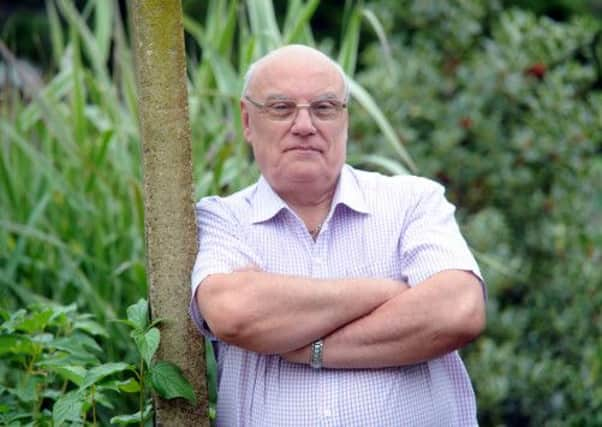Building communities that befriend dementia victims


Peter Smith lost his mother Phyllis long before she succumbed to pneumonia in 2004. Diagnosed some years earlier with dementia, he had become acutely aware of how little many people, including those in the caring professions, know about dealing with those suffering from the disease.
Following his mother’s death he began working with the Alzheimer’s Society and has since spearheaded a drive to make Rothwell the first dementia friendly area of Leeds.
Advertisement
Hide AdAdvertisement
Hide Ad“Work towards Rothwell becoming a dementia friendly community began two years ago with the Tea Cosy Memory Cafe,” says Peter. “It’s a place where dementia sufferers and their carers can meet and it’s now used regularly by almost 100 people. I also run fortnightly reminiscence sessions, have arranged dementia orientated church services and have worked with a number of companies and organisations to raise awareness of dementia.
“Rothwell is a very close knit community which is ideal to begin the process of building a dementia friendly community. Starting in these small communities works because the people with dementia who live here are well know to local businesses which helps the person to remain independent longer and stay part of the community.”
It’s that kind of enterprising spirit, the Alzheimer’s Society wants to see replicated across the country in an effort both to help the rising number of people being diagnosed with dementia and break down one of society’s last taboos.
According to new research published by the charity today, almost one in 10 of those polled said they had been forced to stop doing all of the things they used to do, and 28 per cent of sufferers said they had to give up leaving their homes altogether.
Advertisement
Hide AdAdvertisement
Hide AdThe survey involved 510 individuals and the society, which has extrapolated the results to estimate that as many as 184,800 UK sufferers feel “trapped” in their own homes said that dementia sufferers are being “let down” by their communities.
With just two in five confident their local area is geared up to help them live well as their condition progresses, the Alzheimer’s Society has now launched a 10-point plan to encourage communities across the country to be more “dementia friendly” and to help patients to remain independent. The blueprint includes practical elements such as ensuring early diagnosis and transport systems which recognise the needs of those who suffer from dementia, but the charity also wants to challenge the stigma often associated with the condition. With the population ageing, changing the way we view dementia may be desirable, but according to the Alzheimer’s Society it also makes financial sense.
To put it into figures, a year living in the community with dementia is estimated to cost £24,128, including respite care, therapies and medication. A year in residential care costs an average of £35,424.
According to the report, if just five per cent of admissions to residential care were to be delayed for one year as a result of dementia-friendly communities, there would be a net saving of £55m a year.
Advertisement
Hide AdAdvertisement
Hide AdAside from the scheme in Rothwell, across Yorkshire a number of towns and cities have already embraced the idea of the dementia-friendly community. In Sheffield, the Dementia Action Alliance has already created a action plan outlining improvements it will make to support people living with dementia, while in York the Joseph Rowntree Foundation has launched the Dementia Without Walls project to look at what would make the city a good place to live for people with dementia and their carers.
“It is good to see how far we have come,” says Judith Gregory, area manager for Alzheimer’s Society in Yorkshire and the Humber.
“But unfortunately there are still too many people with dementia who do not feel supported and part of their local area; they feel trapped in their own home, isolated, lonely and a burden.
“Many people want to engage with society but need support to do so, along with improved facilities and transport. It is possible to make small changes that will make their day to day lives much better and being able to stay part of a community for longer, rather than moving into a care home will save money. I would urge everyone to find out more on how you and your neighbourhood can become a dementia friendly community.”
To find out more go to www.alzheimers.org.uk/buildingdfcs.